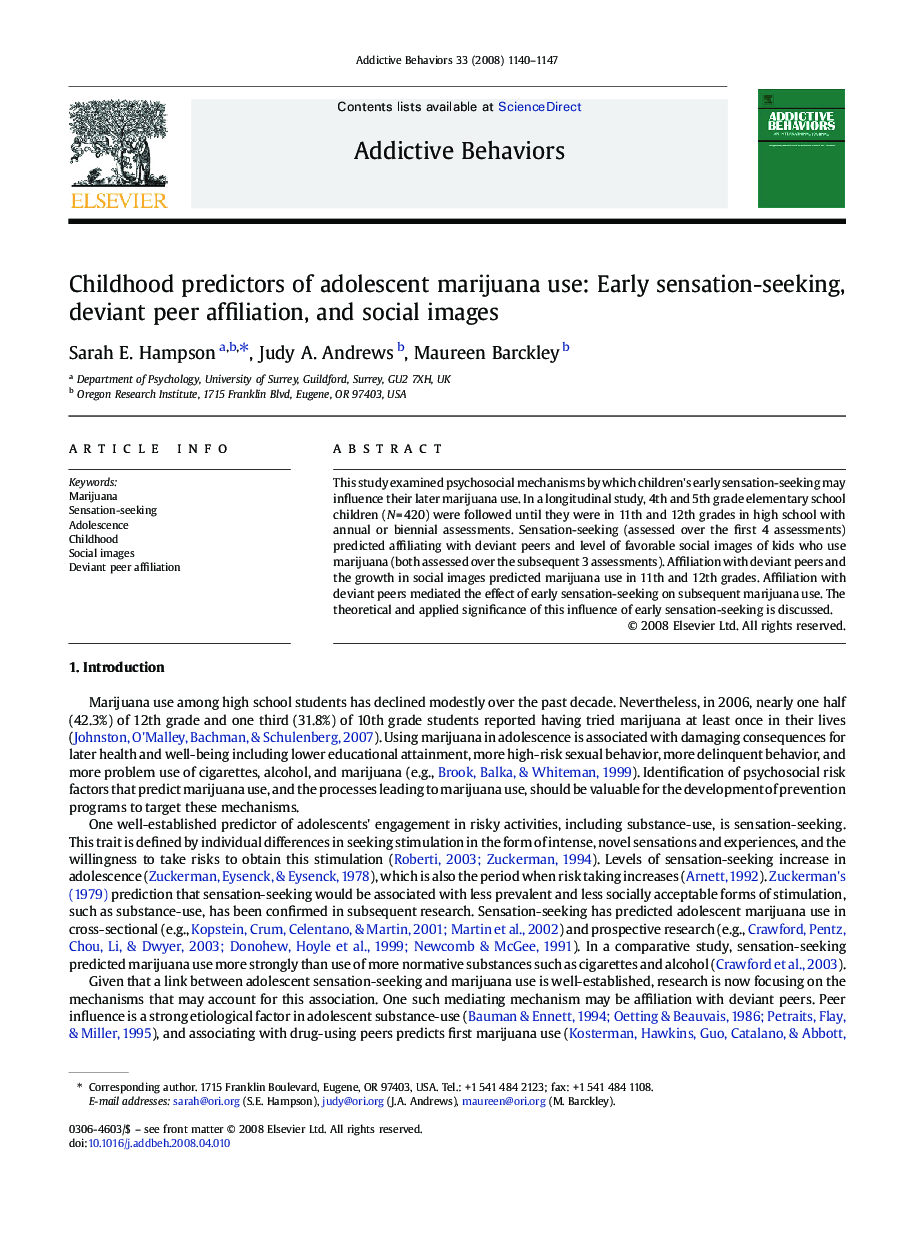| Article ID | Journal | Published Year | Pages | File Type |
|---|---|---|---|---|
| 899761 | Addictive Behaviors | 2008 | 8 Pages |
This study examined psychosocial mechanisms by which children's early sensation-seeking may influence their later marijuana use. In a longitudinal study, 4th and 5th grade elementary school children (N = 420) were followed until they were in 11th and 12th grades in high school with annual or biennial assessments. Sensation-seeking (assessed over the first 4 assessments) predicted affiliating with deviant peers and level of favorable social images of kids who use marijuana (both assessed over the subsequent 3 assessments). Affiliation with deviant peers and the growth in social images predicted marijuana use in 11th and 12th grades. Affiliation with deviant peers mediated the effect of early sensation-seeking on subsequent marijuana use. The theoretical and applied significance of this influence of early sensation-seeking is discussed.
